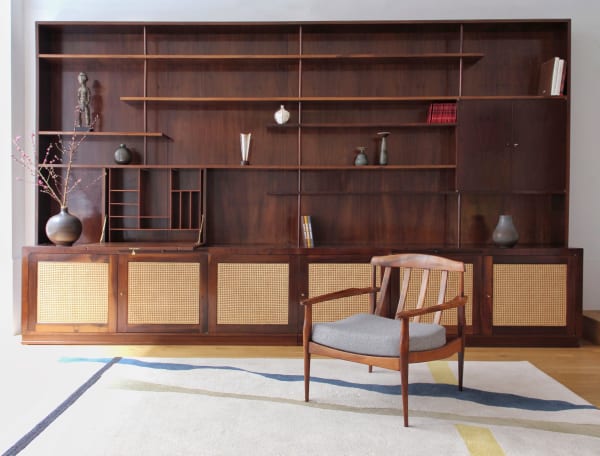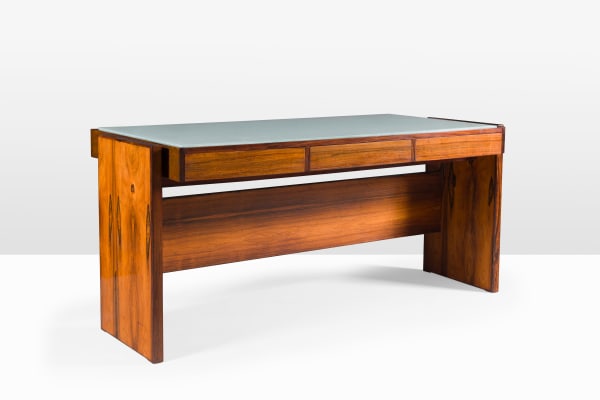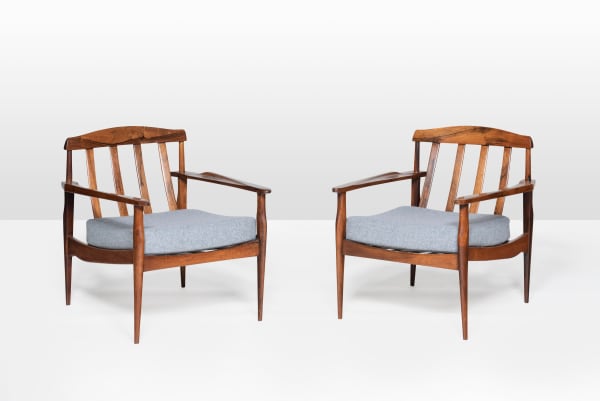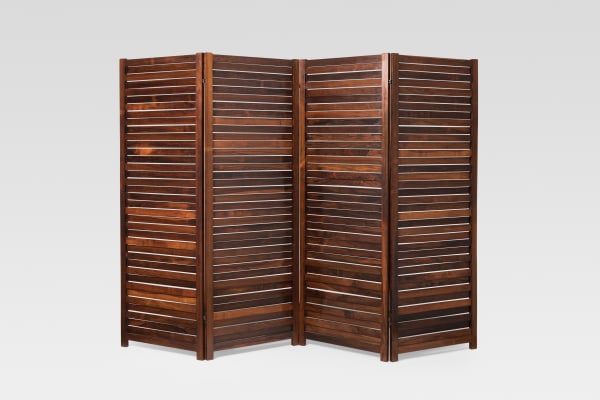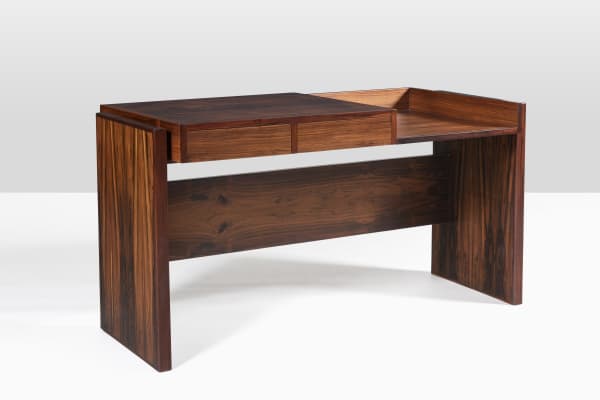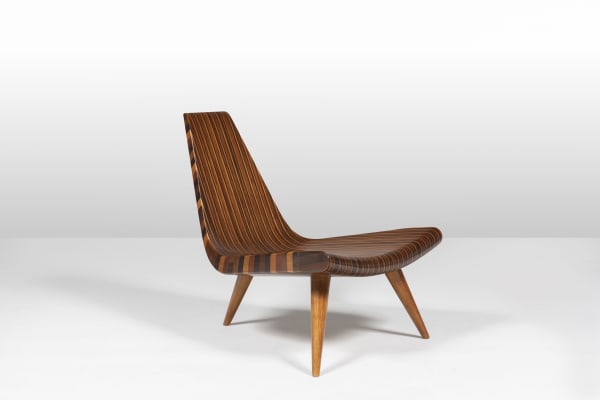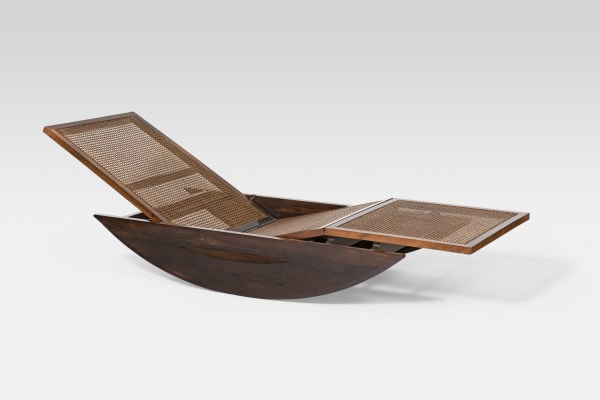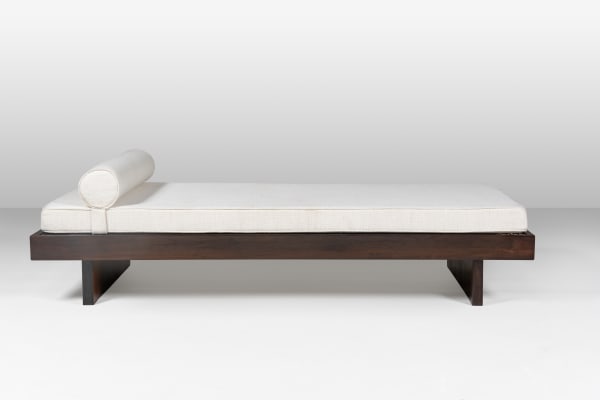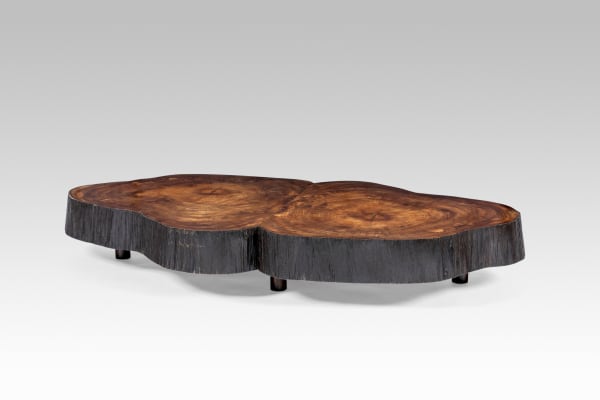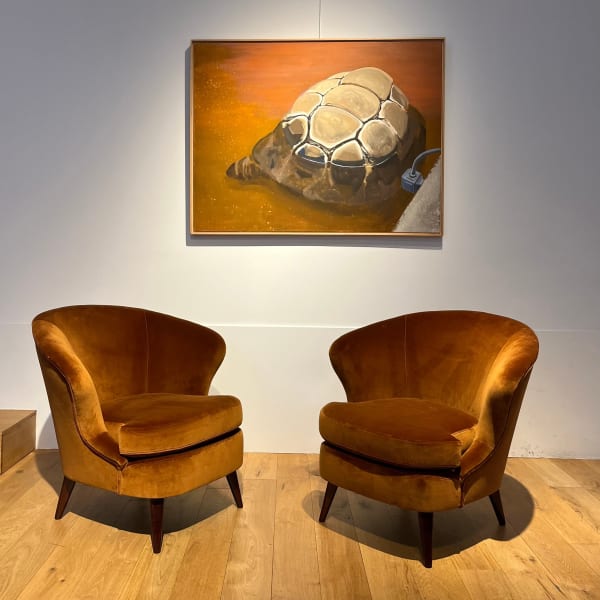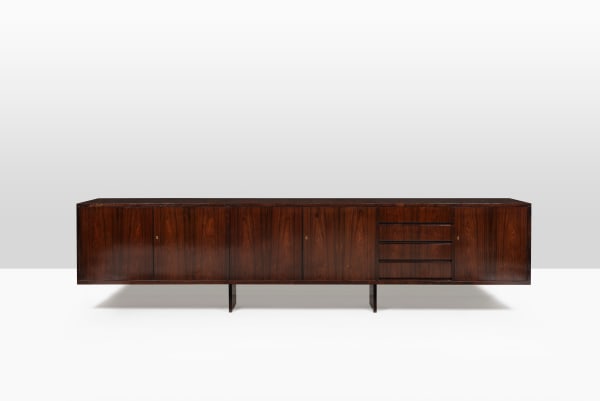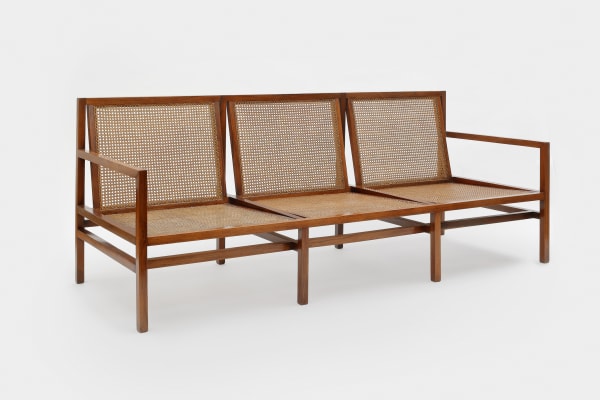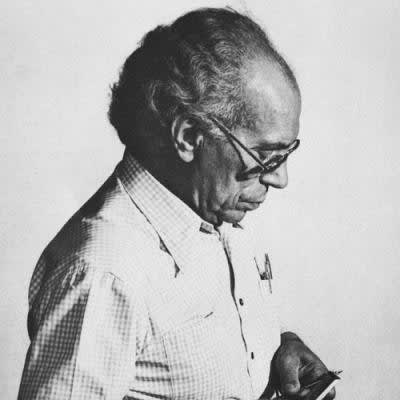Joaquim Tenreiro Brazil, 1906-1992
-
 Bookcase, ca. 1960
Bookcase, ca. 1960 -
 Desk , ca. 1965
Desk , ca. 1965 -
 Rare pair of armchairs, c. 1960
Rare pair of armchairs, c. 1960 -
 Room divider, 1950
Room divider, 1950 -
 Bloch Desk, 1965
Bloch Desk, 1965 -
 Cadeira de Três Pés (Three legs Chair), 1947Sold
Cadeira de Três Pés (Three legs Chair), 1947Sold -
 Chaise longue, 1950Sold
Chaise longue, 1950Sold -
 Coffee Table , ca. 1960Sold
Coffee Table , ca. 1960Sold -
 Daybed, c. 1960Sold
Daybed, c. 1960Sold -
 Desk, ca. 1965
Desk, ca. 1965 -
 Oval Coffee Table from solid "trunk" furniture series, 1955Sold
Oval Coffee Table from solid "trunk" furniture series, 1955Sold -
 Pair of "concha" armchairs, ca. 1960Sold
Pair of "concha" armchairs, ca. 1960Sold -
 Rare coffee table, ca. 1950Sold
Rare coffee table, ca. 1950Sold -
 Rocking Chair, 1948Sold
Rocking Chair, 1948Sold -
 Sideboard, ca. 1960Sold
Sideboard, ca. 1960Sold -
 Three seater sofa, 1958Sold
Three seater sofa, 1958Sold
Joaquim Tenreiro is seen as the founding father of the Brazilian modernist movement and a forerunner in the use of rediscovered raw materials.
Born in Portugal in 1906, Tenreiro came from a line of woodworkers and carpenters. In 1928 he moved to Brazil and started working as a furniture designer for traditional manufacturers that imitated conventional European furniture.
In response to the perceived provincialism of a colonized country, Tenreiro developed a contemporary idiom. Brazilian furniture, he believed, had to be ‘formally light … a lightness which has nothing to do with weight itself, but with graciousness and the functionality of spaces.’
In the early 1940s he founded his own workshop, Langenbach and Tenreiro Ltd. It is in the 1950s that his work started to gain recognitionand that he began to be acknowledged as a master furniture designer in Brazil. His design philosophy was embraced enthusiastically by architects who supported modernism.
Tenreiro began a steady collaboration with Oscar Niemeyer, designing linear and essential furniture for new contemporary homes. The first modern piece of furniture designed for Niemeyer dates from 1942 and was made for a home in Cataguazes, in the state of Minas Gerais. Throughout his career he continued designing mainly tailor-made furniture for important private homes, offices and official buildings.
Tenreiro’s idiom was suited to the Brazilian heat, since he used rattan and local hardwoods abundantly. His work demonstrates exquisite craftsmanship, a blend of tradition and modernity, permeated with Brazilian culture.
In 1967 Tenreiro decided to close his furniture studio and focus exclusively on fine art. He died in 1992, leaving behind an important legacy of elegance, personal style and innovation.
